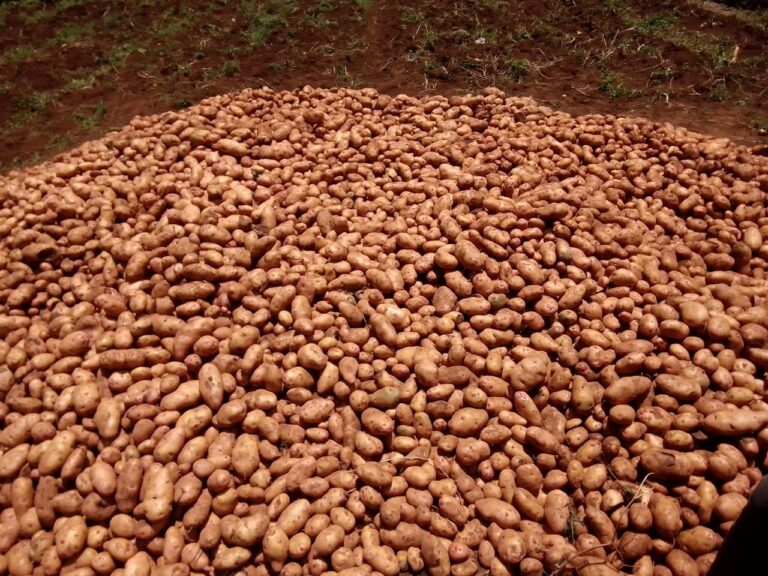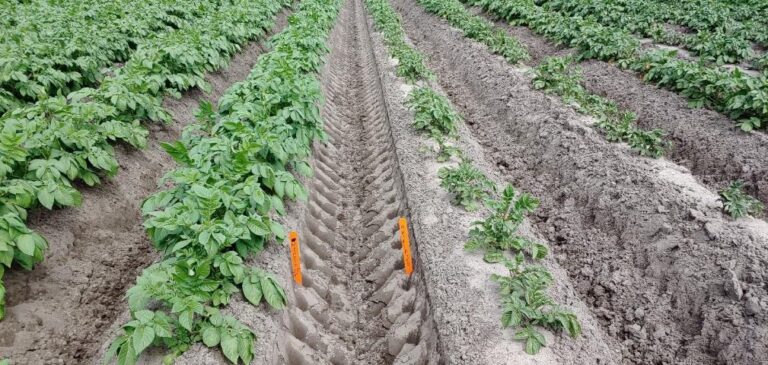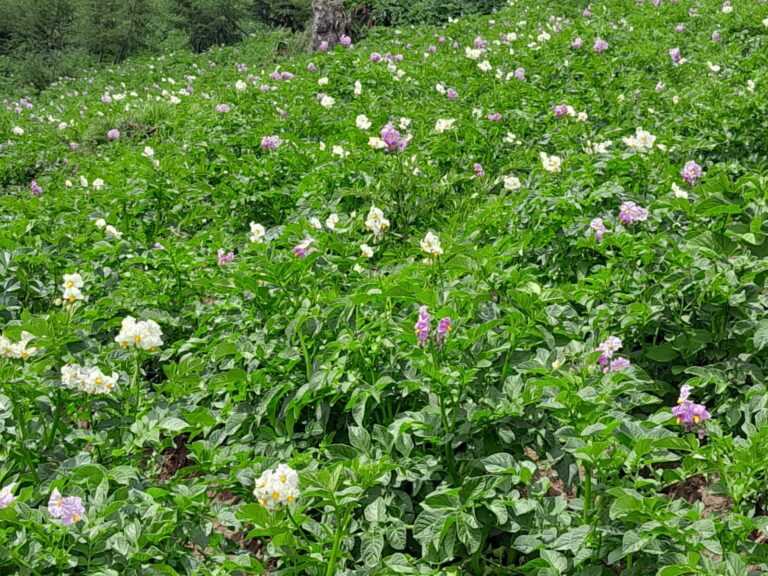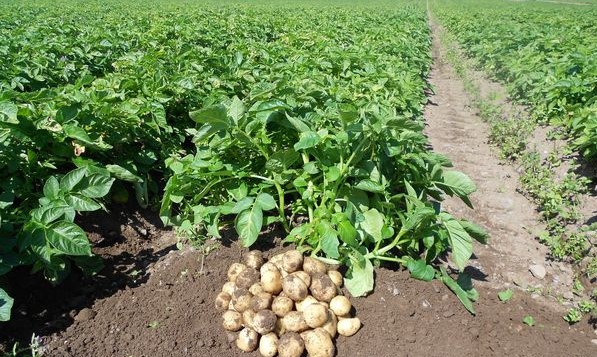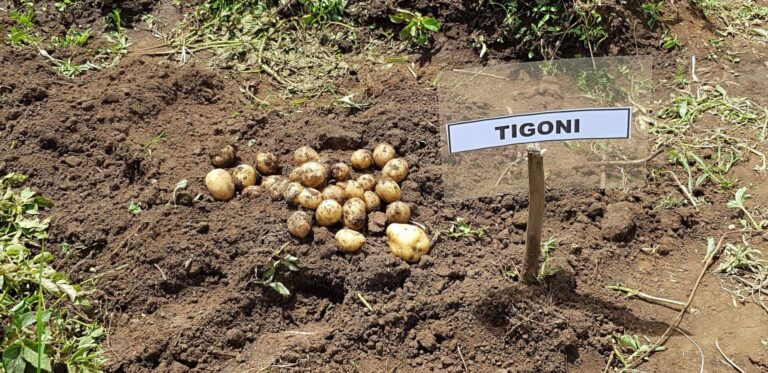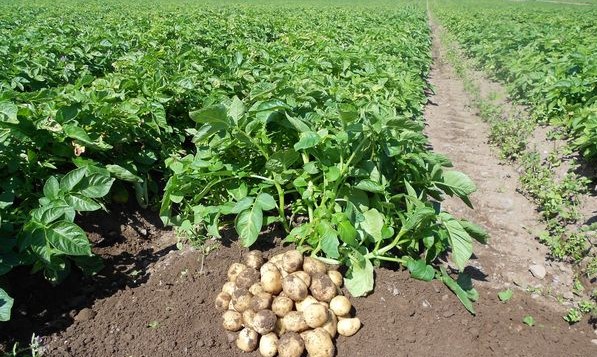Bacterial Wilt Of Potato Treatment In Kenya
Bacterial wilt, also known as potato crown rot, is a serious disease that affects potatoes worldwide, including Kenya. It can cause plants to wilt and eventually die, resulting in significant crop losses.
The disease is caused by several bacteria, including Agrobacterium tumefaciens, Pectinobacterium spp., and Ralstonia solanacearum.
The best way to control bacterial wilt of potatoes is cultural practices, such as crop rotation, using certified disease-free seed , and bio-fumigation. Crop rotation helps to break the disease cycle, while reducing fertilizers can make it harder for bacteria to multiply.
The main control measures include;
- Use clean, certified disease-free seed for planting to minimize bacterial wilt transmission.
- Plant-resistant potato varieties where available to reduce susceptibility to bacterial wilt.
- Practice bio-fumigation by incorporating mustard or radish plants into the soil before planting potatoes to reduce bacterial wilt incidence.
- Avoid successive planting of crops from the same family as potatoes (e.g., tomatoes, peppers) in the same area to prevent bacterial wilt spread.

Chemical Control Of Bacterial Wilt Of Potato
Bacterial Wilt (Ralstonia solanacearum causes severe wilting and there’s no effective chemical treatment.
So focus on prevention and hygiene using certified disease-free seed potatoes, rotating crops, and avoiding fields with a history of the disease.
No chemical controls are effective against potato bacterial wilt caused by Ralstonia solanacearum, except for soil fumigants.
Biological control methods like biocontrol agents and bacteriophages are recommended alternatives to chemical treatments.
Cultural practices such as crop rotation and soil solarization play a crucial role in managing bacterial wilt in potatoes.

How To Prevent Bacterial Wilt Transmission Through Potato Seed?
To prevent bacterial wilt transmission through potato seed, follow these measures:
- Use Certified Disease-Free Seed: Ensure that the potato seed you use is certified free from bacterial wilt and other diseases. This reduces the risk of introducing pathogens into your crop.
- Hot Water Treatment: Treat potato seed tubers with hot water to eliminate bacteria. Submerge the tubers in water heated to 50-55°C (122-131°F) for 20-30 minutes, then cool rapidly. This method helps to kill bacteria on the surface of the seed.
- Chemical Treatments: Some chemical treatments can be used to disinfect potato seed tubers. Follow recommended guidelines and safety precautions when applying chemicals.
- Crop Rotation: Avoid planting potatoes or other crops susceptible to bacterial wilt in the same soil for consecutive seasons. This helps break the disease cycle and reduces soil contamination.
- Field Sanitation: Remove and destroy any infected plants promptly. This prevents the spread of bacterial wilt to healthy plants.
These practices combined can significantly reduce the risk of bacterial wilt transmission through potato seed and help maintain a healthy crop.

